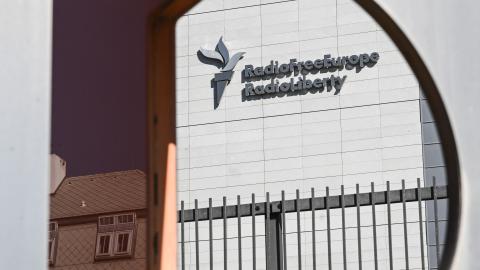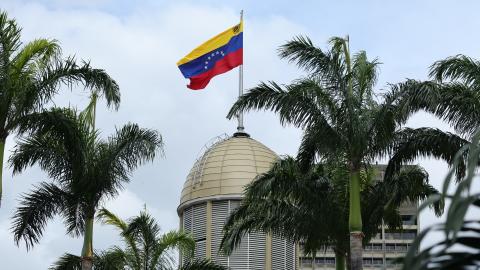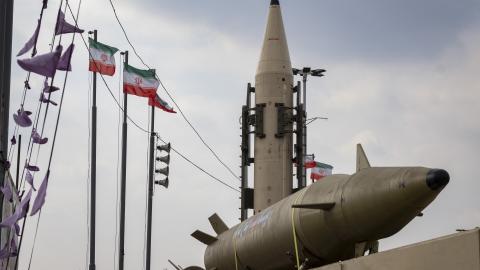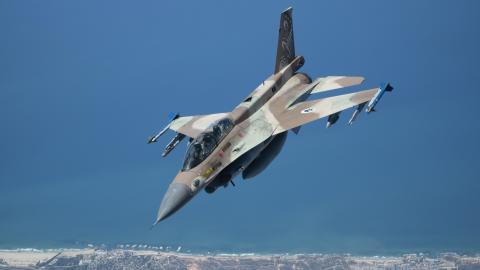Since May 27, the Saudis have arrested eight Christians from India and seized documents naming others. One of those arrested, Chittirical John Thomas, was pulled away from work and beaten in front of his five-year-old son. He is reportedly in the Shemaissy Detention Center.
This followed the March 22 arrest in the Batha area of Riyadh of Indian pastor Samkutty Varghese by the religious police, the muttawa, for not ending a cell phone conversation when the call for Muslim prayer went out. Rev. Varghese, who went to Saudi Arabia as a tourist in January, was apparently not aware of rules forbidding calls at such times. He is still being held, and there are reports that he has been sentenced to ten months in prison, as well as to a flogging.
The muttawa were unusually busy while Crown Prince Abdullah was away in Texas visiting President Bush. On April 23, they arrested 40 Pakistani Christians who were engaged in a joint Catholic-Protestant meeting in a home. On April 29, they arrested five Christians from an Ethiopian and Eritrean group who had gathered for prayer.
Sources in Saudi Arabia believe that authorities there are using the information they have gathered from these raids in order to organize crackdowns elsewhere in the country. Saudi security officials are busily arresting people whose phone numbers were found in Rev. Varghese's diary.
Despite the Saudis' expressions of concern over press reports that U.S. officials at Guantanamo Bay desecrated Korans, their own security authorities have destroyed Bibles found among the victims' possessions, just as they destroyed religious artifacts found in a raid on a makeshift Hindu shrine found in an apartment in Riyadh on March 24.
Apart from persecution of Christian, Hindu, and other foreign workers, Saudi Arabia continues to persecute Shiites and other Muslims who do not follow the repressive Wahhabi version of Islam that is the state religion of the country. Authorities have arrested migrant workers for "allegedly practicing Sufism." And that's not all.
On May 15, three Saudi men--Ali al-Demaini, Abdullah al-Hamed, and Matruk al-Faleh--were sentenced to between six and nine years in jail for calling for a transition to a constitutional democracy. One of the charges against them was that they used "Western terminology" in seeking reforms. Essentially this was an accusation of blasphemy, with the clear implication that advocating democracy and human rights is somehow "un-Islamic."
The center for Democracy and Human Rights in Saudi Arabia reports that Demaini's wife, Fawzi Al-Ouni, says, "My husband received the harshest sentence because he had claimed that the al Qaeda violence that had been plaguing the country was the result of the dominance of the strict Wahhabi version of Islam in Saudi Arabia, to the exclusion of others." Saudi Arabia's persecution of people peacefully following their own beliefs belies all its claims and advertisements that it is curbing and combating religious hatred and extremism.
In September 2004, the State Department for the first time followed the recommendation of the U.S. Commission on International Religious Freedom that Saudi Arabia be designated a "Country of Particular Concern" under the International Religious Freedom Act. However, despite the fact that the State Department has reported that Religious Freedom "does not exist" in Saudi Arabia, it has so far declined to recommend any sanctions against the regime.
President Bush is currently winning much goodwill among Middle Eastern democracy activists for his continued push for political change, even by longstanding allies such as Egypt's President Mubarak. One reason that there is such ferment and debate is that reformers now believe, or hope, they can no longer be quietly dragged off to a cell while the world ignores them. If America now indicates that oil-producing allies such as Saudi Arabia are just too important to challenge, it will reinforce the region's authoritarians and dampen hopes for further change.
Hence, the United States should--at a minimum--follow the commission's recommendation and deny visas to Saudis who carry out or authorize violations of religious freedom, as well as those who propagate religious hatred. It should redouble investigations of Saudi funding and support for propagating religious hatred in the Muslim world and elsewhere, including in the United States. This would signal a genuine commitment to democracy and curtail one of the strongest threats to political freedom worldwide.














